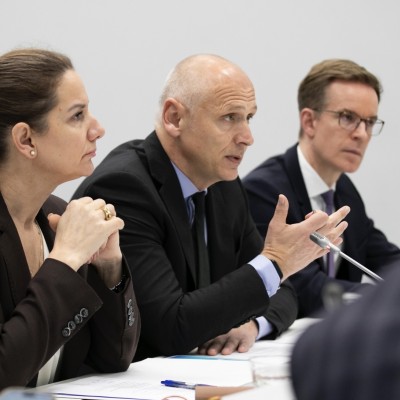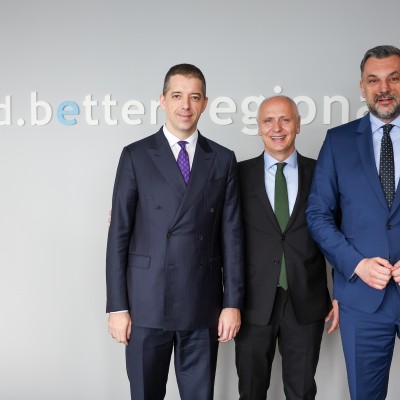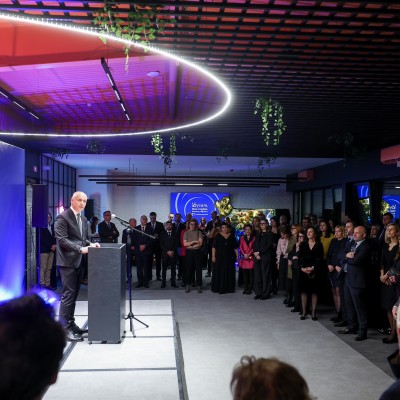RCC Presents SecuriMeter 2025 Findings in Belgrade Kapetanović: When the European path is credible, trust in the region rises as well
19 November 2025
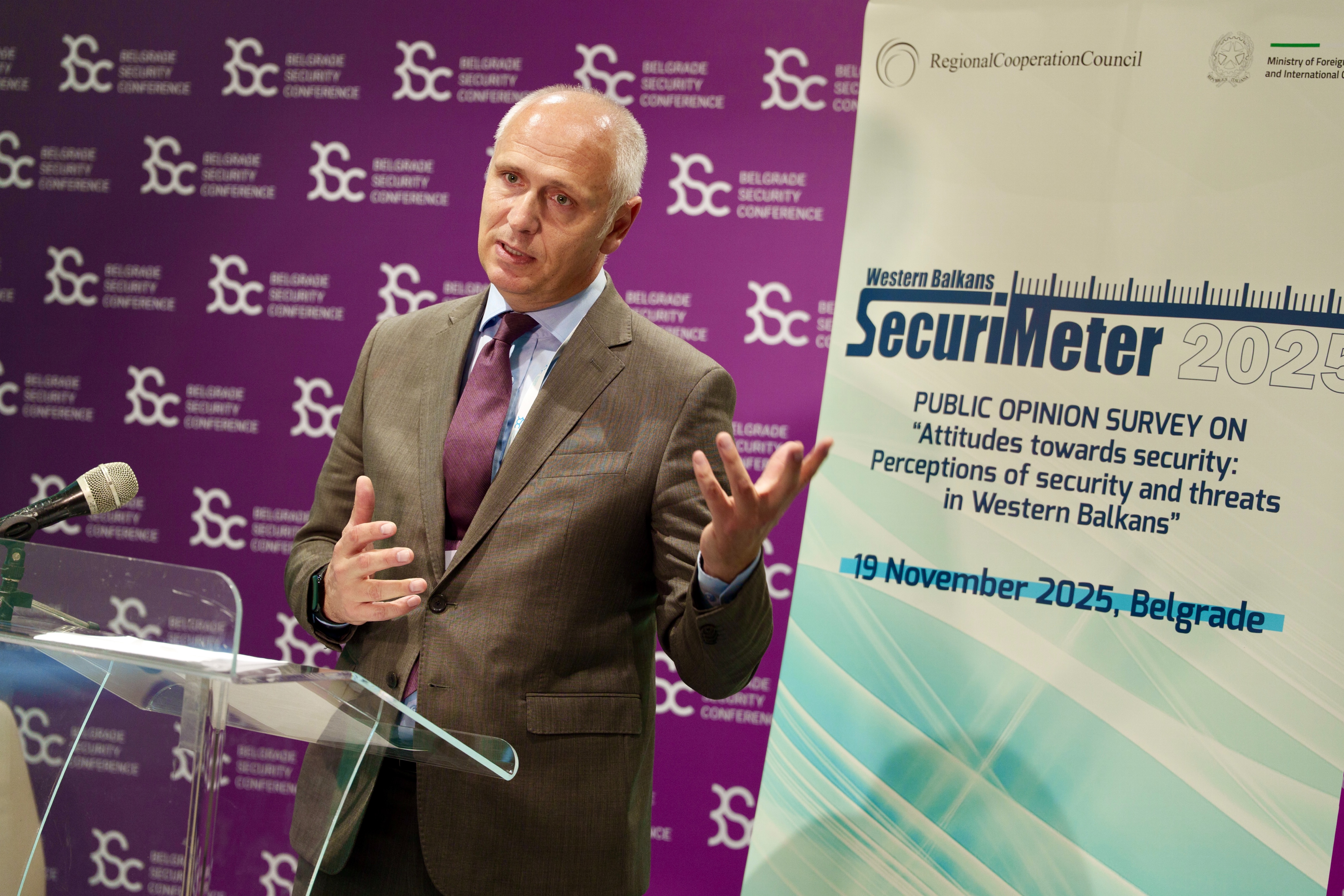
RCC Secretary General Amer Kapetanovic opening the presentation of the findings of SecuriMeter 2025, the Western Balkans’ annual survey on public perceptions of security, at the Belgrade Security Conference on 19 November 2025 (Photo: RCC/Nikola Radojicic)
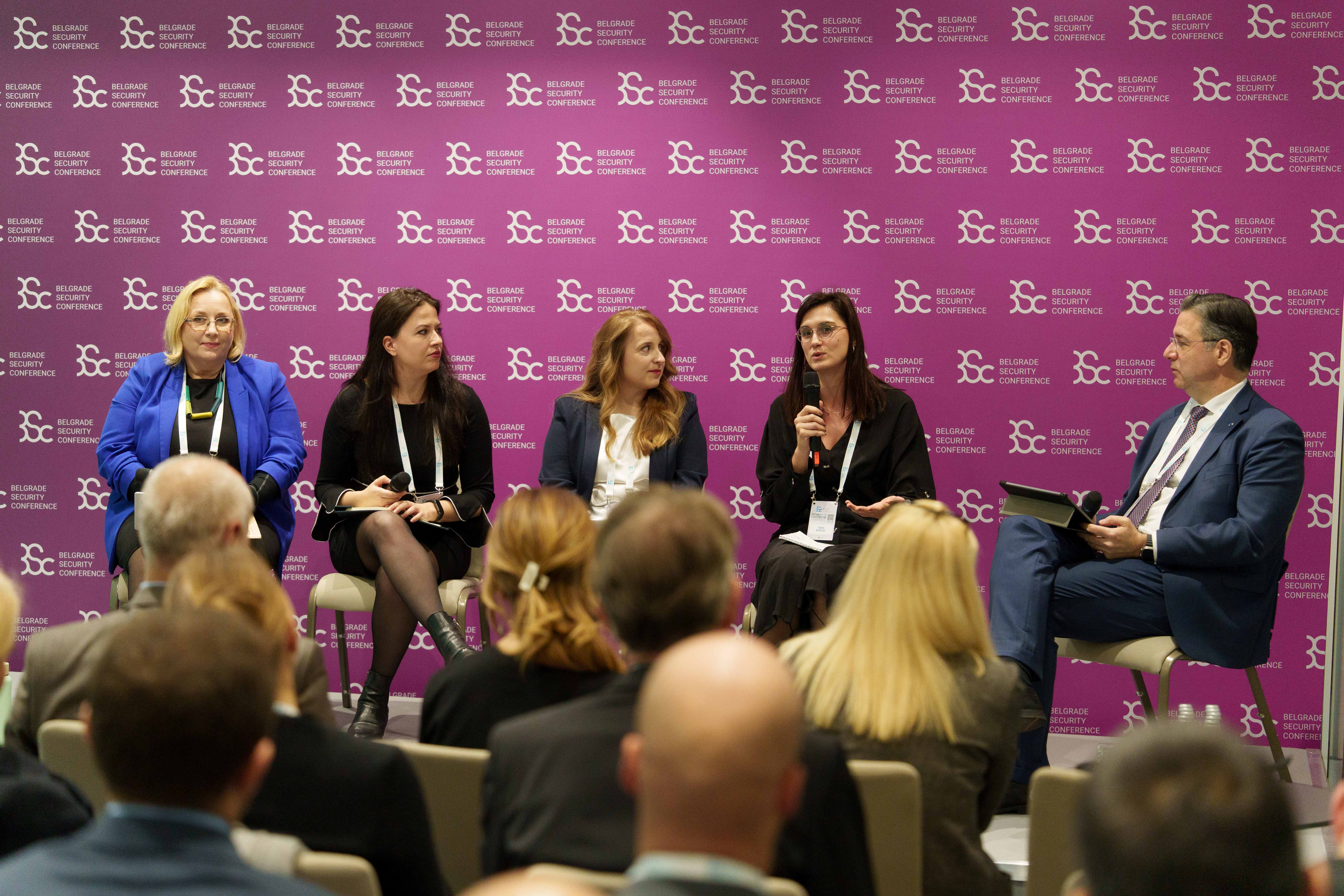
Panel discussion on the latest RCC's SecuriMeter findings presented during the Belgrade Security Conference on 19 November 2025 (Photo: RCC/Nikola Radojicic)
Economic resilience, institutional performance, and youth confidence in the EU shape this year’s results
Belgrade/Sarajevo – The Regional Cooperation Council (RCC) presented today the findings of SecuriMeter 2025, the Western Balkans’ annual survey on public perceptions of security, at the Belgrade Security Conference. Drawing on insights from more than 6,000 citizens, this fifth edition provides the most comprehensive evidence to date on how people across the region perceive security, trust, governance, and the direction of their societies.
Opening the presentation, RCC Secretary General Amer Kapetanović emphasised that trust is the central theme emerging from this year’s survey. “If SecuriMeter could be summarised in one word, it would be trust. People across the Western Balkans are telling us that their biggest concerns today are not distant threats but the resilience of their institutions, the fairness of governance, and the predictability of their future. The good news is that trust can be rebuilt: when institutions deliver, trust grows; when reforms are visible, confidence grows; and when the European path is credible, trust rises at home as well,” said Kapetanović.
Three messages stand out from this year’s SecuriMeter findings:
1. Citizens are increasingly worried about institutions, economies, and the direction of their societies. Across all Western Balkans Six, the strongest pressures reported by citizens are inflation, cost of living, corruption, and perceived institutional decline. This year’s data shows that:
Over 80% of respondents see corruption as widespread;
Nearly one in three believes institutions perform worse than five years ago;
27% are considering moving abroad.
These are signals of concern over economic, institutional, and social resilience. Citizens are asking whether their societies are stable and their futures predictable.
2. Institutional performance drives public trust. SecuriMeter’s econometric model shows a strong link between trust and delivery:
• Better perceived institutional performance increases trust by 10%;
• Lower perceived corruption increases trust by 9%.
Parliaments, governments, and courts remain among the least trusted institutions, while the EU, businesses, and religious institutions enjoy significantly higher trust levels. Citizens consistently stress the same message: trust is built through fairness, transparency, and effective service delivery, not through political narratives.
3. Youth and the European Union remain the strongest anchors of trust. Young citizens (18–24) continue to express the highest levels of trust in institutions, particularly the European Union. The model confirms that: Citizens who trust the EU are 37% more likely to trust their own domestic institutions. This demonstrates that EU integration is not only a political process, but also a psychological one, shaping expectations, hope, and confidence in the future. Maintaining credibility of the EU path is therefore essential for strengthening domestic trust across the region.
The SecuriMeter presentation included also an overview of key findings by Aner Zuković, Senior RCC Expert on Security, followed by a panel discussion, moderated by Pavle Janković, Head of the RCC Political Department, featuring: Tijana Rečević, Professor at University of Belgrade; Sonja Stojanović Gajić, Professor at University of Rijeka; Iliriana Gjoni, Research Analyst at Carnegie Europe; and Nikolina Stefanovska from Market Vision. Panellists reflected on how the findings intersect with economic pressures, democratic governance, youth expectations, cyber threats, and the credibility of the EU perspective.
Ahead of the SecuriMeter presentation, RCC Secretary General Amer Kapetanović visited the South Eastern and Eastern Europe Clearinghouse for the Control of Small Arms and Light Weapons (SEESAC) headquarters in Belgrade, where he met with Bojana Balon, Head of SEESAC. As a joint initiative of UNDP and the Regional Cooperation Council, SEESAC has long been one of the region’s most effective platforms for strengthening the control and reduction of small arms and light weapons, advancing gender equality, and fostering regional cooperation. During the meeting, Ms. Balon expressed appreciation for RCC’s longstanding steady guidance and partnership and briefed the Secretary General on SEESAC’s ongoing activities and future plans, while Mr. Kapetanović commended SEESAC’s years-long work as a role model for similar initiatives worldwide and reaffirmed RCC’s strong support for its mission.
SecuriMeter is funded by the Italian Ministry of Foreign Affairs and International Cooperation.
SecuriMeter 2025 is available online at: rcc.int/securimeter/

